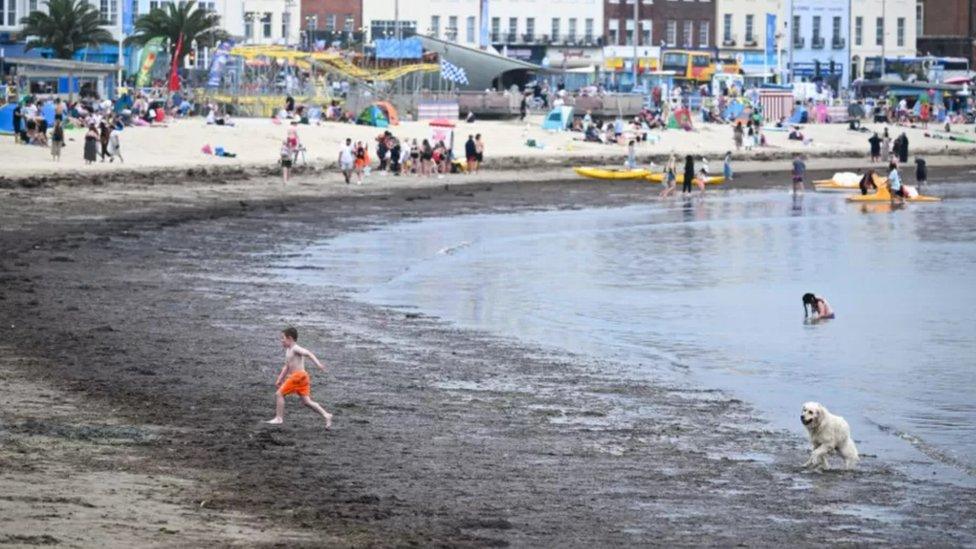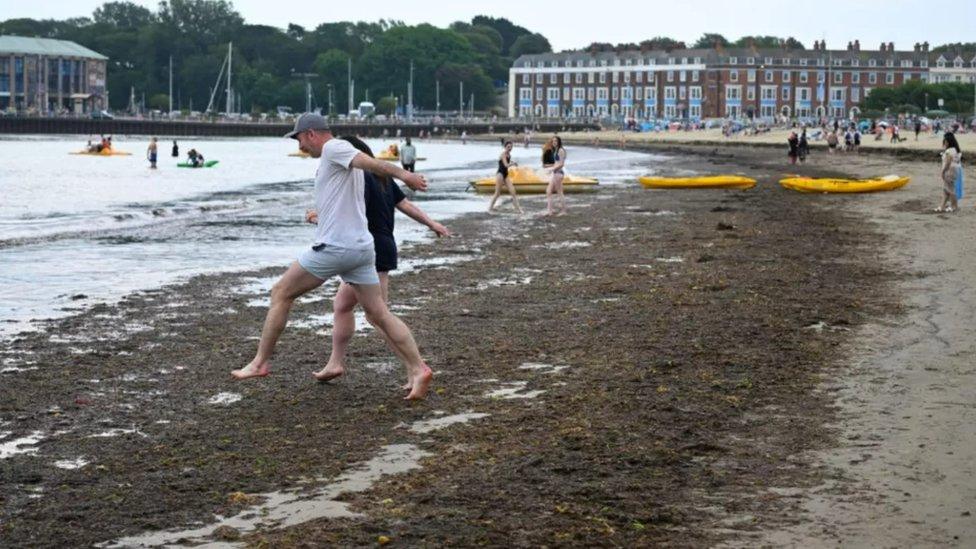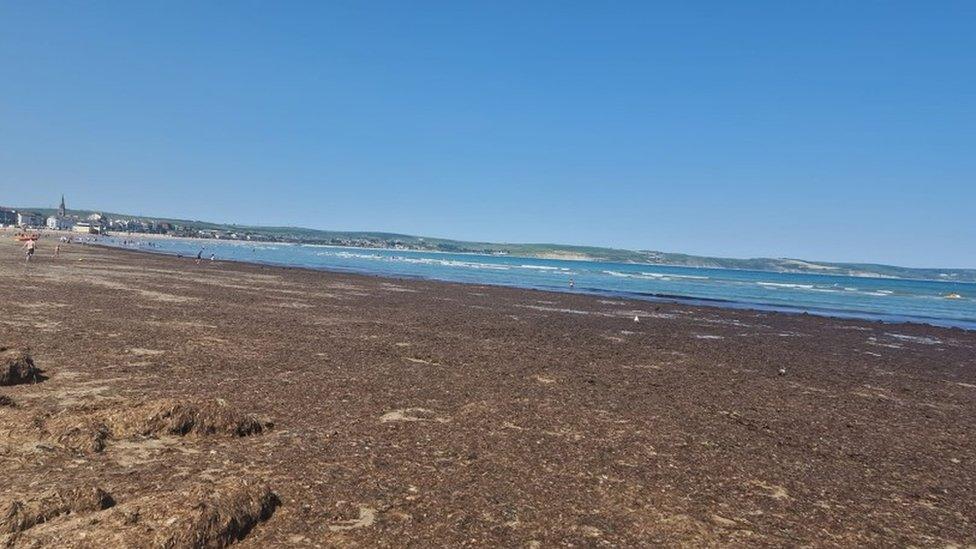Weymouth beach seaweed to be 'helped' back to the sea
- Published

Visitors complained about wading through seaweed to reach the water
Piles of rotting seaweed on a popular tourist beach are to be moved to allow the tide to take them back out to sea.
Some beachgoers at Weymouth, Dorset, had complained about wading through smelly kelp to get to the water.
The town council previously said the seaweed was ecologically important and it would not be "interfering with its natural course".
But because it has not been naturally washing away as hoped, the authorities have decided to intervene.

Springwatch presenter Chris Packham said marine algae traps more carbon than rainforests
Some visitors took to TripAdvisor to complain about the "smelly and fly-infested carpet" of seaweed.
Weymouth Town Council said it was "not striving to provide a synthetic, controlled swimming pool experience".
"We invite visitors to embrace the raw beauty of nature in its unaltered form, which includes the presence of seaweed," it said.
But since then things have changed.
Weymouth town councillor David Harris said: "When the seaweed came in, it came in on spring tides, so left it at a high level on the beach.
"It's starting to die off so it's important we get it back into its own environment.
"Hopefully we can allow the tide to move it out to sea, we will just push it down the beach a little bit to help it."

Weymouth holds a Blue Flag award for its beach
Mr Harris said beachgoers had been "happily enjoying the water" throughout the week.
"Occasionally there were whiffs of the hydrogen sulphide that gets created but, on the whole, everyone carried on as normal and the beaches were crowded over the weekend," he added.
Beach visitor Julie Brindle said: "It's very smelly - you have to walk through it in order to bathe. I'm a regular visitor to Weymouth and I've never known it to be like that before."
Chris Packham, broadcaster and naturalist, previously said: "Marine algae is incredibly important - it traps more carbon than every rainforest we've got on the planet. Let's get a grip and tolerate nature."
Weymouth beach currently holds both the Seaside Award and the Blue Flag Award in recognition of its cleanliness and water quality.

Follow BBC South on Facebook, external, Twitter, external, or Instagram, external. Send your story ideas to south.newsonline@bbc.co.uk, external.
- Published12 June 2023
- Published9 June 2023

- Published9 June 2023
